Cultural diversity is not merely a fact in our globalized world; it is a vibrant phenomenon that shapes the very fabric of society. The aesthetics of restaurant furniture is one area where this rich tapestry comes to life. Restaurant...
Cultural diversity is not merely a fact in our globalized world; it is a vibrant phenomenon that shapes the very fabric of society. The aesthetics of restaurant furniture is one area where this rich tapestry comes to life. Restaurant designers are increasingly treading a fine line between tradition and innovation, creating places that reflect the unique stories of nations around the world.
The integration of cultures in restaurant furniture aesthetics has arisen as a gripping trend throughout this design revolution. The article takes you on a tour through the history, intricacies, and future projections of this fascinating phenomenon. We delve into the complexities that make global fusion in restaurant furniture a fascinating investigation of creativity and diversity, from the incorporation of traditional materials to the delicate dance between cultural sensitivity and innovation.
Historical Evolution
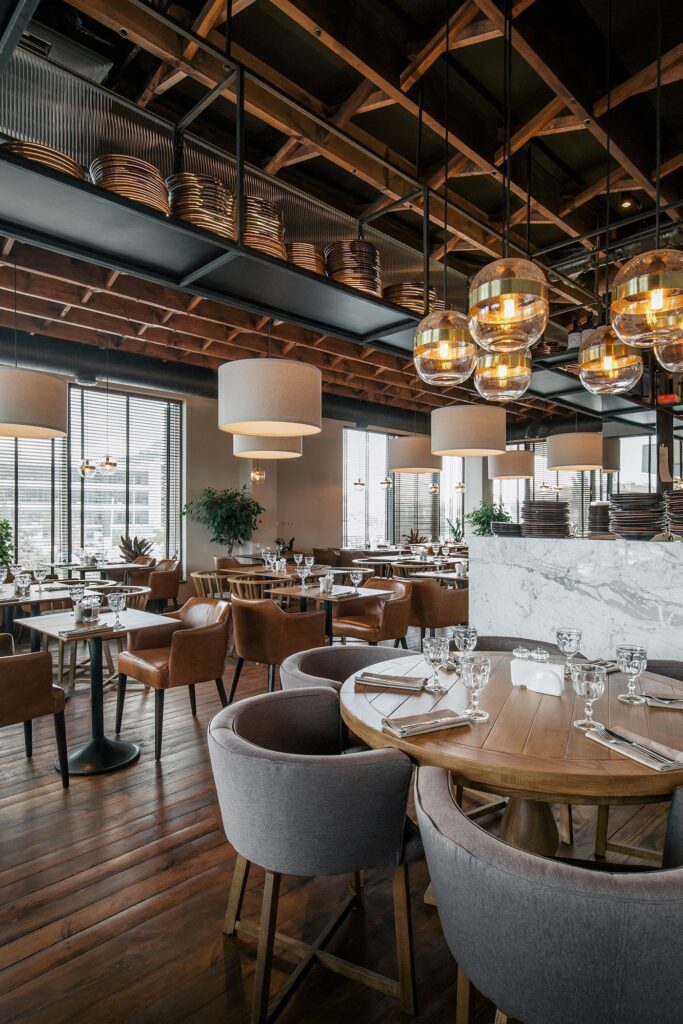
source: pinterest.com
Understanding the roots of cultural fusion in restaurant furniture requires a glimpse into the historical evolution of design trends. In eras past, restaurant aesthetics were often shaped by regional styles, reflecting local traditions and customs. However, the onset of globalization brought forth a paradigm shift, ushering in an era where cultural exchange became not just inevitable but celebrated.
Early attempts at blending cultures in restaurant aesthetics laid the groundwork for the eclectic designs we witness today. From the quaint fusion of European and Asian elements in the Silk Road era to the Art Deco movement’s embrace of global motifs, the historical canvas is a masterpiece of cross-cultural inspiration.
Important Cultural Elements
Cultural aspects are the heartbeat of the delicate dance of design, throbbing through every piece of commercial restaurant furniture. Traditional materials from various cultures add a distinct authenticity to the visual story. Exquisite Asian woodwork, vivid African textiles, and South American workmanship meet to create a harmonic symphony that transcends geographical borders.
Symbols and motifs with profound cultural roots can be seen in the exquisite carvings of chairs or the patterns adorning tables. Restaurants are transformed into immersive cultural experiences through the merging of color schemes inspired by the bright palettes of numerous traditions. It’s a celebration of diversity, a visual feast that crosses borders and invites visitors to immerse themselves in a worldwide tapestry.
Design Problems and Solutions
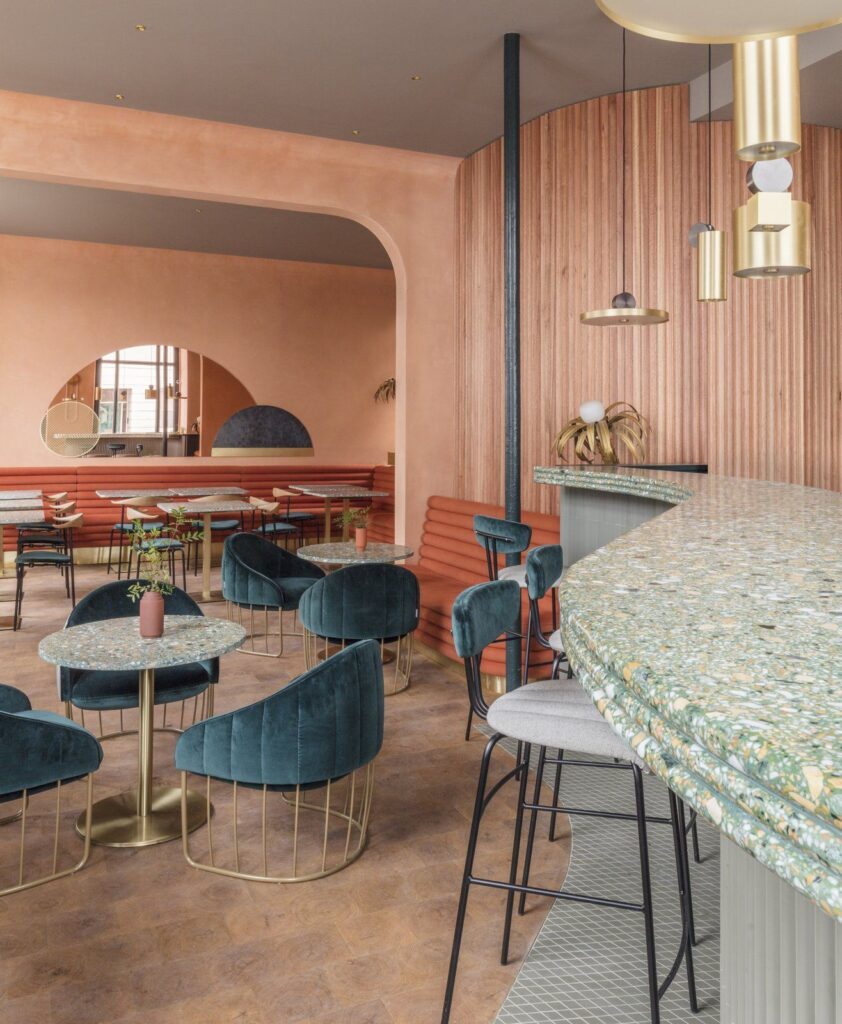
source: pinterest.com
However, obstacles develop as designers traverse the rich environment of global fusion. A creative problem arises from the careful balance between authenticity and modern functionality. How can one preserve a culture’s traditions while providing the practicality expected by modern diners?
Addressing these issues requires a more nuanced approach. Designers must become cultural ambassadors, immersed in the intricacies of each tradition while remaining acutely aware of modern design principles. Logistical and manufacturing challenges necessitate creative solutions, stretching the frontiers of global design collaboration.
Design Technology
The design landscape is changing the age of technology. Digital tools not only enable global collaboration but also serve as a blank canvas for virtual exploration. Designers may see cultural fusion in real-time thanks to virtual and augmented reality, which transcends physical boundaries and fosters a new era of cross-cultural creativity.
Sustainability has a position in this technological growth as well. Advanced technologies such as 3D printing provide the path for more sustainable manufacturing processes, minimizing waste and environmental effects. The combination of technology and design paves the way for a future in which cultural fusion is more than just an aesthetic choice, but a sustainable, forward-thinking one.
Considerations for Ethical Behavior
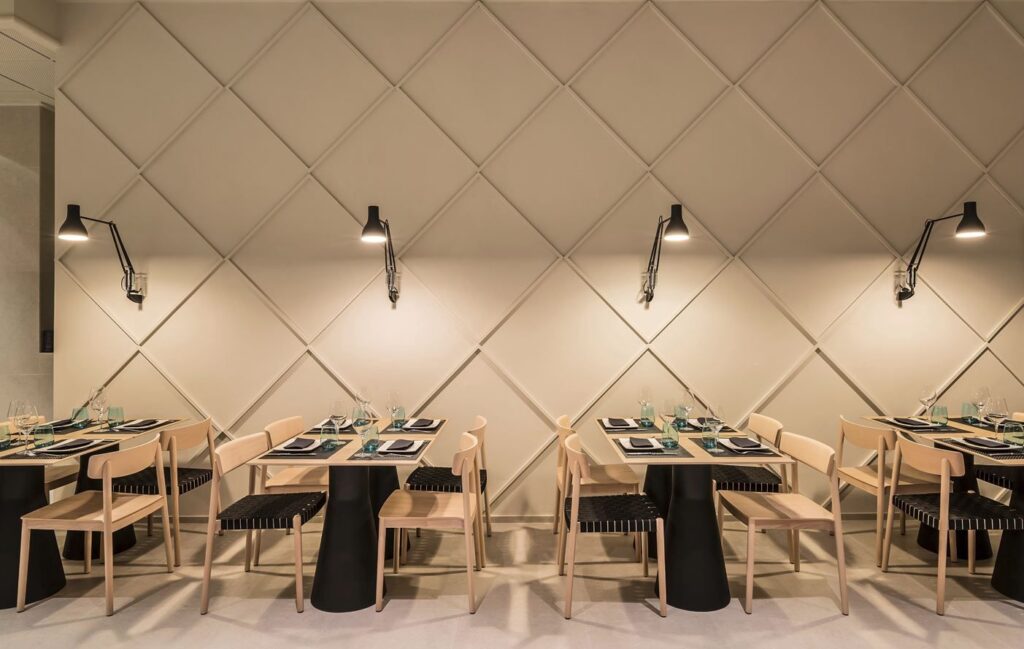
source: pinterest.com
The enthralling dance of global fusion raises ethical concerns that must be carefully considered. Designers must walk carefully in the age of cultural appropriation controversies, distinguishing between reverence and exploitation. Case studies of disputes highlight the value of cultural sensitivity, asking the design community to adopt a more inclusive and courteous approach.
In this complex landscape, guidelines for ethical global fusion in restaurant design emerge as beacons. Cultural sensitivity training is becoming increasingly important to ensure that every design decision is made with a deep understanding and respect for the many cultures from which it takes inspiration. As the sector evolves, ethical considerations become a requirement rather than a choice.
Future Global Fusion Trends
The journey into the future of global fusion in restaurant furniture exposes a panorama of growing cultural influences. Predictions point to designers pushing limits and uncovering untapped cultural reserves to continue celebrating diversity. As globalization merges with fast-evolving design philosophies, the stage is set for an era in which cultural fusion becomes more than just a trend, but an essential component of design DNA.
Innovations in ecological and culturally sensitive materials foreshadow a future in which restaurant furniture conveys a message about more than just beauty. As technology advances, so does our ability to incorporate various cultures into the very fabric of our creations. The future of global fusion is dynamic, ever-changing, and full of possibilities.
Design with Cultural Sensitivity
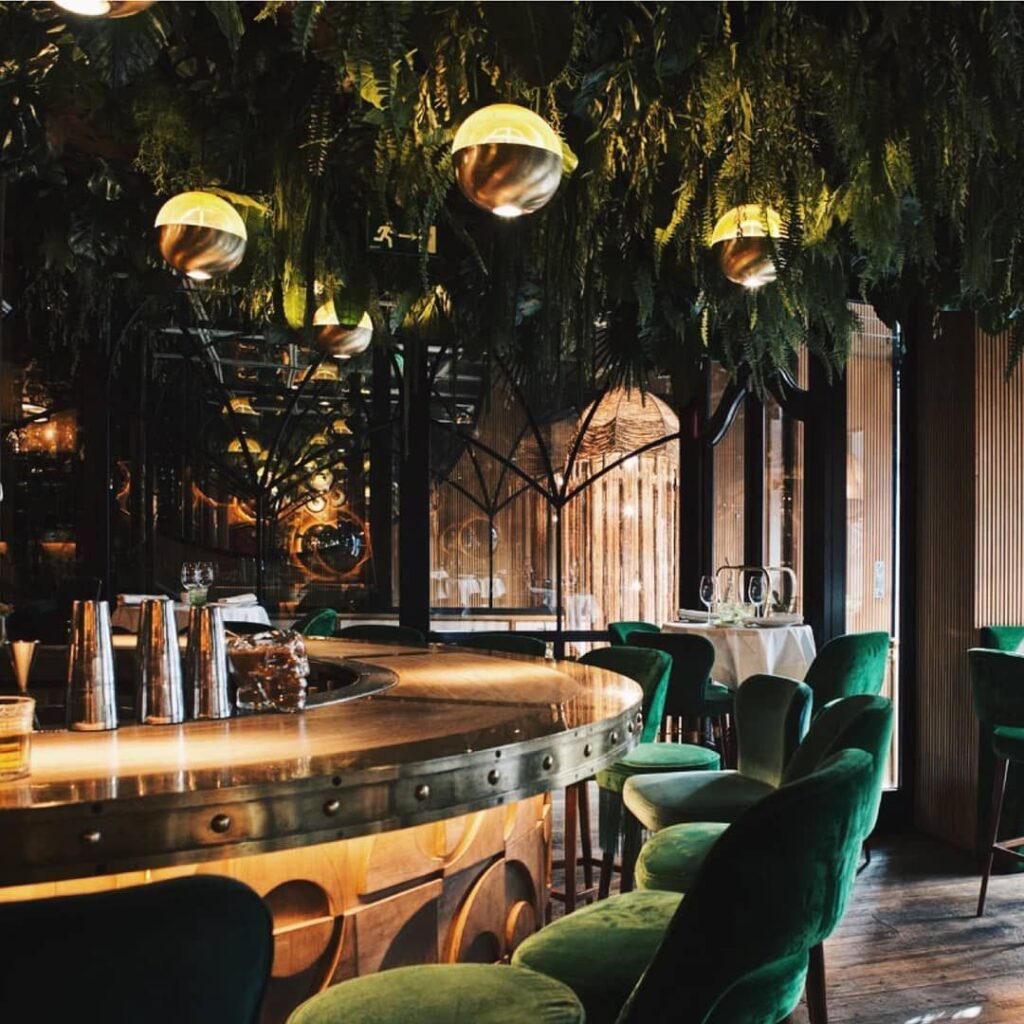
source: pinterest.com
The notion of cultural sensitivity is central to the global fusion narrative. As designers engage on the journey of building inclusive places, understanding and honoring other cultures becomes critical. Aside from the aesthetic, this section discusses the significance of implementing inclusive design approaches to ensure that every patron, regardless of background, feels accepted and represented.
As guiding principles, strategies to avoid unintentional cultural appropriation arise. Cultural consultants become useful collaborators, bringing new ideas and perspectives to the design process. Fostering cross-cultural design education and awareness is a responsibility that designers, educators, and enthusiasts must all share.
Global Fusion and Sustainability
Sustainability arises as a guiding factor in the pursuit of aesthetic perfection. Using eco-friendly materials and techniques is no longer a choice, but a must. From material procurement to manufacturing, designers work with environmental experts to reduce the environmental impact of restaurant furniture.
The sustainable design movement is more than a fad; it is a fundamental shift in the global fusion mindset. Consumers, who are becoming more concerned about their environmental impact, are driving the need for sustainable practices. Sustainable sourcing and manufacturing techniques become gold standards, laying the groundwork for an industry that not only celebrates variety but also cares for the environment.
Embracing Diversity in Design
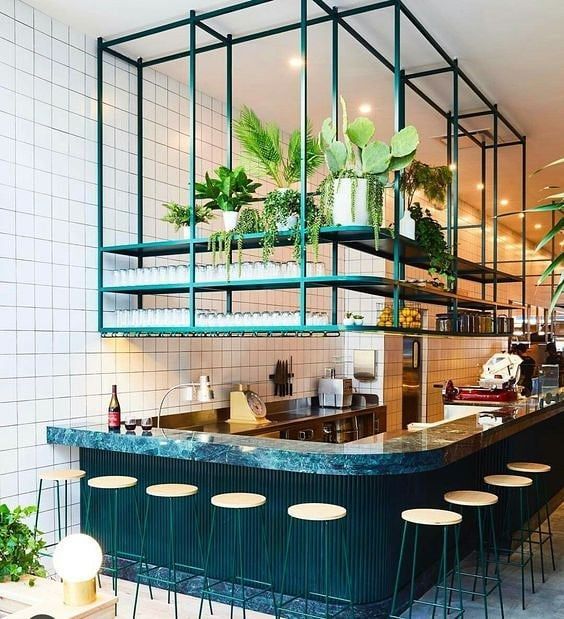
source: pinterest.com
As we reflect on the dynamic journey through the realms of global fusion in restaurant furniture aesthetics, one resounding theme echoes, the importance of embracing diversity in design. The marriage of cultures in restaurant furniture is not merely an aesthetic choice; it’s a celebration of the myriad stories that shape our world.
This exploration transcends borders and invites designers, patrons, and enthusiasts to partake in a global feast of creativity. The evolving landscape of cultural integration in design is not just a trend; it’s a movement toward a more inclusive, respectful, and sustainable future.
As we navigate the delicate dance between tradition and innovation, let us not forget that every design choice has the power to be a catalyst for positive change. In embracing diversity, we not only craft aesthetically pleasing spaces but also contribute to a world where every culture is celebrated, respected, and woven into the very fabric of our shared human experience.
The post Global Fusion: Blending Cultures in Restaurant Furniture Aesthetics appeared first on The Architecture Designs.


